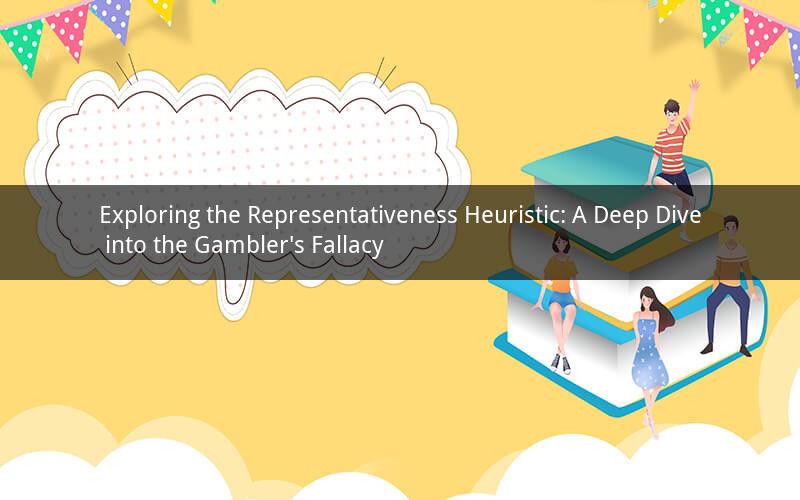
The representativeness heuristic is a mental shortcut that humans use to make quick judgments and decisions. It involves estimating the likelihood of an event by comparing it to its perceived prototype. The gambler's fallacy, on the other hand, is a cognitive bias that occurs when people believe that a random sequence of events is more predictable than it actually is. This article aims to illustrate how the representativeness heuristic contributes to the gambler's fallacy and shed light on the psychological processes involved.
1. What is the representativeness heuristic?
The representativeness heuristic is a rule of thumb that allows people to make quick judgments about the likelihood of an event based on how well it matches a prototype or stereotype. For example, if someone is asked to estimate the likelihood of a person being a lawyer, they might base their judgment on how well the person matches their mental image of a lawyer, such as being well-educated, wearing a suit, and working in an office.
2. How does the representativeness heuristic lead to the gambler's fallacy?
The gambler's fallacy occurs when individuals believe that a random sequence of events is more predictable than it actually is. This happens because the representativeness heuristic leads people to overestimate the impact of recent events on future outcomes. For instance, if a coin lands on heads five times in a row, a person using the representativeness heuristic might believe that the next toss is more likely to be tails, assuming that the coin is "due" for a tails outcome.
3. Can the representativeness heuristic be overcome?
While the representativeness heuristic is a common cognitive bias, it can be overcome by employing strategies that encourage critical thinking and awareness of the bias. One effective strategy is to use the base rate heuristic, which involves focusing on the overall likelihood of an event occurring rather than relying on recent events or stereotypes. By doing so, individuals can make more rational decisions.
4. Are there any real-life examples of the representativeness heuristic and the gambler's fallacy?
Yes, there are numerous real-life examples of the representativeness heuristic and the gambler's fallacy. For instance, many people believe that lotteries are "due" to win, leading them to buy more tickets in the hopes of hitting the jackpot. Similarly, investors may believe that a stock's performance is predictable based on its recent trends, leading them to make irrational investment decisions.
5. How can the representativeness heuristic and the gambler's fallacy be used to improve decision-making?
Understanding the representativeness heuristic and the gambler's fallacy can help individuals make better decisions by being aware of their cognitive biases. By recognizing that these biases can lead to irrational decisions, individuals can take steps to mitigate their effects. For example, investors can use historical data and statistical analysis to make more informed decisions rather than relying on recent trends or stereotypes.
In conclusion, the representativeness heuristic plays a significant role in the development of the gambler's fallacy. By understanding the psychological processes involved, individuals can develop strategies to overcome their cognitive biases and make more rational decisions. Here are five questions related to the representativeness heuristic and the gambler's fallacy:
1. How does the representativeness heuristic affect our perception of probability?
The representativeness heuristic leads individuals to overestimate the likelihood of events based on their perceived similarity to a prototype, which can distort their perception of probability.
2. Can the representativeness heuristic be influenced by cultural factors?
Yes, cultural factors can influence the representativeness heuristic by shaping individuals' mental prototypes and stereotypes. This can lead to differences in decision-making across cultures.
3. How can the gambler's fallacy be used to manipulate individuals in everyday life?
The gambler's fallacy can be used to manipulate individuals by exploiting their cognitive biases. For example, casinos often use the concept of "due" outcomes to encourage players to continue betting.
4. Are there any benefits to using the representativeness heuristic in certain situations?
While the representativeness heuristic can lead to cognitive biases, it can also be useful in certain situations, such as making quick judgments in unfamiliar environments. However, it is important to be aware of its limitations.
5. How can individuals improve their decision-making skills by understanding the representativeness heuristic and the gambler's fallacy?
By understanding the representativeness heuristic and the gambler's fallacy, individuals can develop critical thinking skills and become more aware of their cognitive biases. This can help them make more informed decisions in various aspects of their lives.